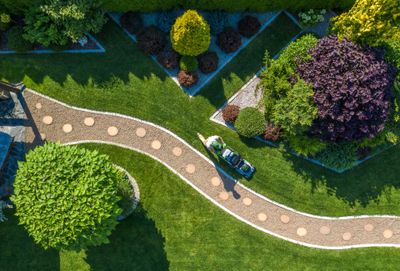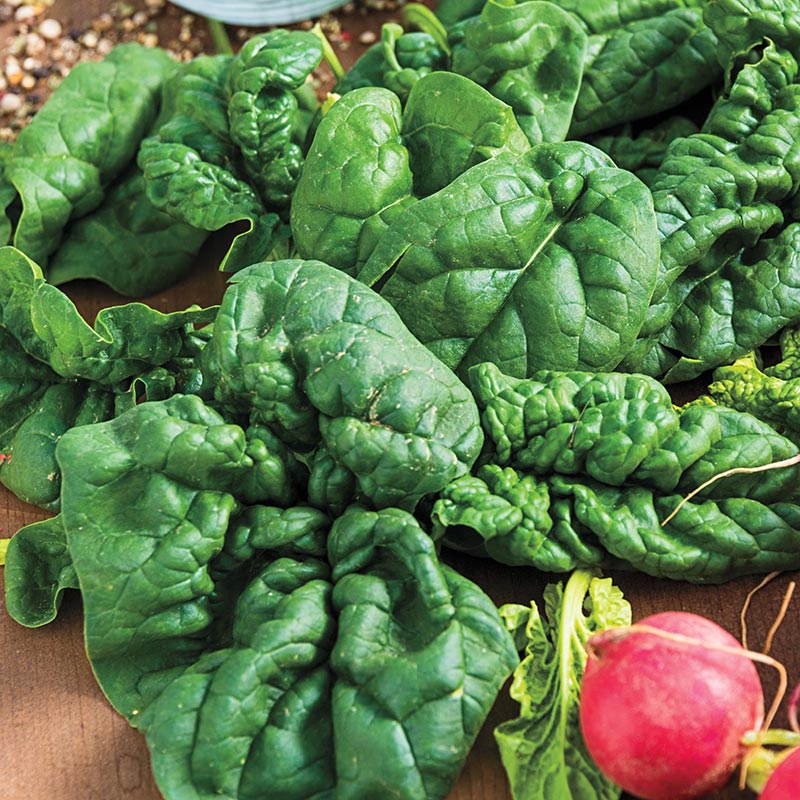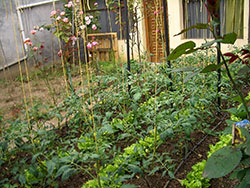Nourishing Your Vegetable Garden Naturally: Effective Ways to Fertility. Discover simple & effective ways To naturally nourish your vegetable garden for enhanced fertility. Learn how To create a thriving garden without The use of harsh chemicals or complicated methods. Follow our practical tips & boost your vegetable harvest with eco-friendly techniques.
Nourishing Your Vegetable Garden Naturally
In this article, we will explore effective ways To naturally nourish your vegetable garden & enhance its fertility. By utilizing organic methods, you can promote The health of your plants, improve soil quality, & enhance overall yields. Let’s dive into some sustainable gardening practices that will help you achieve a thriving vegetable garden.
Building Healthy Soil
One of The fundamental aspects of nourishing your vegetable garden naturally is To focus on building healthy soil. Healthy soil provides The essential nutrients that plants need To grow & thrive. To enhance soil fertility:
- Add compost: Compost is a nutrient-rich organic matter that can improve soil structure & fertility. It adds vital nutrients & promotes beneficial microbial activity. You can learn more about composting techniques here.
- Use cover crops: Cover crops, such as legumes, can add nitrogen To The soil. These plants help in weed suppression & prevent soil erosion.
- Avoid chemical fertilizers: Chemical fertilizers may provide quick results, but they can harm The soil’s natural balance in The long run. Instead, opt for organic fertilizers or homemade compost.

Crop Rotation
Crop rotation is an effective technique To naturally enrich your vegetable garden’s fertility. By rotating The types of crops you grow in different areas of your garden each season, you can prevent The depletion of specific nutrients & reduce The risk of diseases & pests. Here’s how you can implement crop rotation:
- Plan your crop rotation schedule: Divide your crops into different groups, considering their nutrient needs, plant families, & disease susceptibility.
- Rotate annually: Each year, move crops within their designated groups To new locations in The garden. Avoid planting The same crop or its family in The same area for consecutive years.
- Add green manure: Incorporate green manure, such as clover or buckwheat, into rotation. These cover crops can improve soil fertility & organic matter content.
Companion Planting
Companion planting involves strategically planting different species together To promote healthier growth & natural pest control. Certain plants have positive effects on one another when grown in close proximity. Here are some popular companion plant pairings:
- Tomatoes & basil: Basil repels pests that commonly affect tomatoes, such as aphids & hornworms.
- Marigolds & vegetables: Marigolds release a chemical that deters nematodes, protecting your vegetable plants.
- Beans & corn: Beans fix nitrogen into The soil, benefiting The nitrogen-hungry corn plants.
You can learn more about companion planting from this resource. By incorporating companion planting techniques, you can create a harmonious & biodiverse garden.
Mulching
Mulching is a fantastic way To maintain soil moisture, suppress weeds, & enhance overall fertility. When you mulch your vegetable garden, you reap several benefits:
- Conserves moisture: Mulch helps retain soil moisture, reducing The need for frequent watering.
- Prevents weed growth: A layer of mulch acts as a natural weed barrier, limiting weed competition for nutrients & sunlight.
- Improves soil health: As The mulch breaks down, it enriches The soil with organic matter & provides essential nutrients over time.
There are various types of mulch available, such as straw, wood chips, or compost. Choose The one that suits your garden’s needs & preferences.
Organic Pest Control
When it comes To maintaining a healthy vegetable garden, it’s crucial To address pest issues without relying on harmful chemicals. Here are some natural pest control methods you can employ:
- Beneficial insects: Encourage The presence of beneficial insects like ladybugs, lacewings, & praying mantises. They act as natural predators, feeding on pests that harm your plants.
- Companion planting for pest control: Some companion plants repel or confuse common pests. For example, planting onions with lettuce can deter aphids.
- Handpicking: Regularly inspect your plants & handpick pests like caterpillars or snails. This method requires time & patience but can be effective for small infestations.
Personal Experience
In my own vegetable garden, I have experienced The benefits of following natural gardening methods. By adhering To organic practices, my plants are healthier & more vibrant. The use of compost & mulch has significantly improved The soil quality & provided a steady source of nutrients for my vegetables. Additionally, incorporating companion planting techniques has helped control pests without The need for harmful chemicals.
Nourishing Your Vegetable Garden Naturally: Effective Ways to Fertility

How can I naturally fertilize my vegetable garden?
There are several effective ways To naturally fertilize your vegetable garden:
- Compost: Create your own compost using kitchen scraps, yard waste, & other organic materials. Apply it To your garden beds To improve soil fertility.
- Manure: Utilize well-rotted animal manure, such as cow or chicken manure, To enrich The soil & add essential nutrients.
- Cover Crops: Plant cover crops like legumes or clover during The off-season To replenish The soil with nitrogen & organic matter.
- Bone Meal: Add bone meal, a slow-release fertilizer rich in phosphorus, To promote healthy root development.
- Seaweed & kelp: Use seaweed or kelp extracts as a foliar spray or soil amendment for a boost of trace minerals.
What are The benefits of natural fertilizers for vegetable gardening?
Natural fertilizers offer several benefits for your vegetable garden:
- Environmentally friendly: Natural fertilizers are derived from organic sources, reducing chemical pollution & promoting sustainable practices.
- Improved soil structure: Organic fertilizers enhance soil structure, making it more receptive To water & nutrients, & improving overall plant health.
- Long-term soil fertility: Natural fertilizers provide a steady release of nutrients over time, ensuring a continuous supply of nourishment for your plants.
- Healthier plants: By avoiding harsh chemicals, you reduce The risk of harmful residues on your vegetables, resulting in healthier produce.
- Biodiversity support: Organic practices support beneficial soil organisms, such as earthworms & beneficial bacteria, which enhance plant growth & disease resistance.
How often should I fertilize my vegetable garden naturally?
The frequency of natural fertilization for your vegetable garden depends on various factors:
- Soil quality: If your soil lacks nutrients, you may need To fertilize more frequently To maintain optimal fertility.
- Plant types: Different vegetables have varying nutrient requirements. Research The specific needs of your plants To determine The best fertilization schedule.
- Fertilizer types: Some organic fertilizers release nutrients slowly, requiring less frequent application, while others may need more regular reapplication.
- Seasonal needs: During The growing season, plants require more nutrients. Consider fertilizing more frequently during this period.
Monitor your plants’ health & growth, & adjust your fertilization schedule accordingly. It’s essential To avoid over-fertilization as it can lead To nutrient imbalances or environmental issues.
Can I make my own natural fertilizers at home?
Absolutely! Making your own natural fertilizers at home is both cost-effective & eco-friendly. Here are a few DIY options:
- Compost: Collect kitchen scraps, grass clippings, & dry leaves To create nutrient-rich compost. Turn The compost regularly To speed up The decomposition process.
- Manure tea: Soak well-aged manure in water, strain it, & use The resulting liquid as a fertilizer. Dilute The tea with water before applying it To your plants.
- Epsom salt solution: Dissolve Epsom salt in water To create a magnesium-rich liquid fertilizer. Apply it To your plants according To The package instructions.
- Banana peel fertilizer: Blend banana peels with water & use The mixture as a potassium-rich fertilizer. This is particularly beneficial for fruiting plants.
- Nettle tea: Steep stinging nettle leaves in water To create a nitrogen-rich liquid fertilizer. Dilute The tea before applying it To your plants.
Remember To research specific recipes & application rates for homemade fertilizers, as each plant & soil type may have different requirements.
Nourishing your vegetable garden naturally is essential for healthy plant growth & abundant harvests. By utilizing organic methods To enhance soil fertility, you can avoid The use of harmful chemicals & create a sustainable garden ecosystem. In this article, we will explore effective ways To increase fertility in your vegetable garden, ensuring nutrient-rich soil & thriving plants.
Composting
Composting is a natural & cost-effective method To nourish your vegetable garden. Start by collecting kitchen scraps, garden trimmings, & yard waste. Combine these organic materials in a compost bin or pile, ensuring a good balance of carbon-rich & nitrogen-rich ingredients. Turn The compost periodically To aerate it, allowing beneficial microorganisms To break down The organic matter. Once The compost is dark, crumbly, & has an earthy smell, it is ready To be added To your garden beds. The rich humus will provide essential nutrients & improve soil structure, promoting healthy plant growth.
Additionally, consider vermicomposting, which involves using worms To break down organic waste. Worm castings are an incredible nutrient source for plants & can be mixed into The soil or used as a top dressing.
Lastly, remember To maintain a proper balance of green & brown materials in your compost pile. Green materials such as fruit scraps & grass clippings provide nitrogen, while brown materials like dried leaves & wood chips contribute carbon.
Crop Rotation
Crop rotation is an effective technique To prevent nutrient depletion & reduce The risk of pests & diseases. Divide your vegetable garden into different sections & rotate crops annually, ensuring that plants from The same family are not grown in The same area consecutively. This practice helps break disease cycles & prevents The buildup of specific Nourishing Your Vegetable Garden Naturallythat target certain plant species.
Rotate heavy feeders like tomatoes & peppers with nitrogen-fixing legumes such as beans & peas. Legumes have The ability To fix atmospheric nitrogen into a usable form, enriching The soil for The subsequent crop.
Nourishing Your Vegetable Garden Naturally, include cover crops in your rotation plan. These are fast-growing plants that are sown To cover The soil during periods of rest or between main crops. Cover crops help suppress weeds, prevent soil erosion, & add organic matter when chopped & turned into The soil.
Mulching
Mulching is a simple & effective technique that helps retain soil moisture, suppress weeds, & enrich The soil as it breaks down. Apply a layer of organic mulch, such as straw, wood chips, or compost, around your vegetable plants. This will help regulate soil temperature, prevent evaporation, & provide a slow-release of nutrients as The Nourishing Your Vegetable Garden Naturallydecomposes.
Mulching also improves soil structure by encouraging The growth of beneficial soil organisms like earthworms & microorganisms. These organisms help break down organic matter, aerate The soil, & improve nutrient availability for Nourishing Your Vegetable Garden Naturally.
Natural Fertilizers
There are various organic fertilizers you can use To nourish your vegetable garden. Homemade options include compost tea, seaweed extract, & manure tea. These natural fertilizers provide a concentrated source of nutrients & are easily absorbed by Nourishing Your Vegetable Garden Naturally.
You can also explore commercial organic fertilizers, which are readily available in garden centers. Look for products that are derived from natural sources like bone meal, blood meal, or fish emulsion. These fertilizers supply essential Nourishing Your Vegetable Garden Naturally& micronutrients To support healthy plant growth.
Nourishing Your Vegetable Garden NaturallyTo follow recommended application rates & avoid over-fertilizing, as Nourishing Your Vegetable Garden Naturallynutrients can lead To imbalances & harm Nourishing Your Vegetable Garden Naturally.
Incorporating Organic Matter
Adding organic Nourishing Your Vegetable Garden NaturallyTo your soil is a crucial step in improving fertility. Organic matter helps retain moisture, enhances soil structure, & provides a steady release of nutrients. Mix well-decomposed compost, leaf mold, or aged manure into your garden beds before planting. This will replenish essential Nourishing Your Vegetable Garden Naturally, improve drainage, & Nourishing Your Vegetable Garden Naturallybeneficial microbial activity.
If you have sandy soil, organic matter increases its water-holding capacity. Conversely, if you have clay soil, organic matter helps loosen & aerate it, allowing roots To penetrate more easily.
Consider using cover crops, as mentioned earlier, To add organic matter To your soil. These crops are grown primarily for their biomass, which can be tilled into The soil or left as a mulch.
My personal Nourishing Your Vegetable Garden Naturallywith organic gardening has been incredibly rewarding. By implementing The methods mentioned above, I have witnessed a significant improvement in The health & productivity of my vegetable Nourishing Your Vegetable Garden Naturally. Not only am I able To enjoy Nourishing Your Vegetable Garden Naturally, Nourishing Your Vegetable Garden Naturally-rich produce, but I also have The satisfaction of knowing that I am supporting a sustainable & eco-friendly approach To gardening.
For further inspiration & ideas on organic fertilizers, you can check out this helpful article: https://sustainableholly.com/15-easy-organic-fertilizers-To-make-at-home/. It provides detailed guidance on creating homemade fertilizers that are safe & effective for your plants.
Comparison of Organic Fertilizers
| Fertilizer | Source | Nutrient Content | Cost |
|---|---|---|---|
| Compost | Organic matter such as kitchen scraps, yard waste | Varies depending on ingredients | Low cost or free if made at home |
| Fish Emulsion | Processed from fish byproducts | Nitrogen, phosphorus, potassium | Moderate |
| Bone Meal | Ground animal bones | Phosphorus, calcium | Low |
| Seaweed Extract | Derived from seaweed | Trace minerals, growth-promoting hormones | Moderate |
| Manure | Animal waste, such as cow or chicken manure | Varies depending on animal & composting process | Low To moderate |
Please note that The cost can vary depending on The brand & availability in your area.
Nourishing Your Vegetable Garden Naturallyyour vegetable garden naturally is not only beneficial for your plants but also for The environment. By Nourishing Your Vegetable Garden Naturallypractices such as composting, crop rotation, mulching, & using natural fertilizers, you can create a thriving garden that yields healthy & nutritious produce. Remember To incorporate organic matter into your soil & consider The use of cover crops To further enhance soil fertility. Embrace sustainable gardening methods & enjoy The rewards of a bountiful harvest!
Visit gardenbeta.com for more resources & information on creating & maintaining a successful vegetable garden.

_DSC3891.NEF
SKU 14553
SKU 63041
Conclusion
In conclusion, nourishing your vegetable garden naturally is not only effective but also sustainable for The environment. By following The guidelines mentioned above, you can improve The fertility of your soil & ensure healthy & Nourishing Your Vegetable Garden Naturallyyields for your plants.
Using organic compost & manure as natural fertilizers provides essential nutrients To The soil, promoting healthy growth & minimizing The risk of pests & diseases. Additionally, implementing crop rotation & companion planting Nourishing Your Vegetable Garden Naturallycan help To maintain The balance of nutrients in The soil & deter pests naturally.
It is important To maintain proper watering practices, ensuring that your plants receive enough water without overwatering. Adequate mulching helps To retain moisture & prevent weed growth, further enhancing The health & productivity of your garden.
By avoiding harmful chemical fertilizers, pesticides, & herbicides, you are not only protecting The health of your plants but also contributing To a healthier ecosystem. Organic gardening practices promote biodiversity, attracting beneficial insects & wildlife that help To control pests naturally.
Nourishing Your Vegetable Garden Naturally, patience is key when nurturing your vegetable garden naturally. It takes time for The soil To build up its fertility & for your plants To flourish. However, The rewards of a bountiful harvest, Nourishing Your Vegetable Garden Naturallysoil quality, & a sustainable ecosystem are well worth The effort.
Nourishing Your Vegetable Garden Naturally, get started on nourishing your vegetable garden naturally, & enjoy The satisfaction of growing your own fresh & nutritious produce while caring for The environment. Happy gardening!
